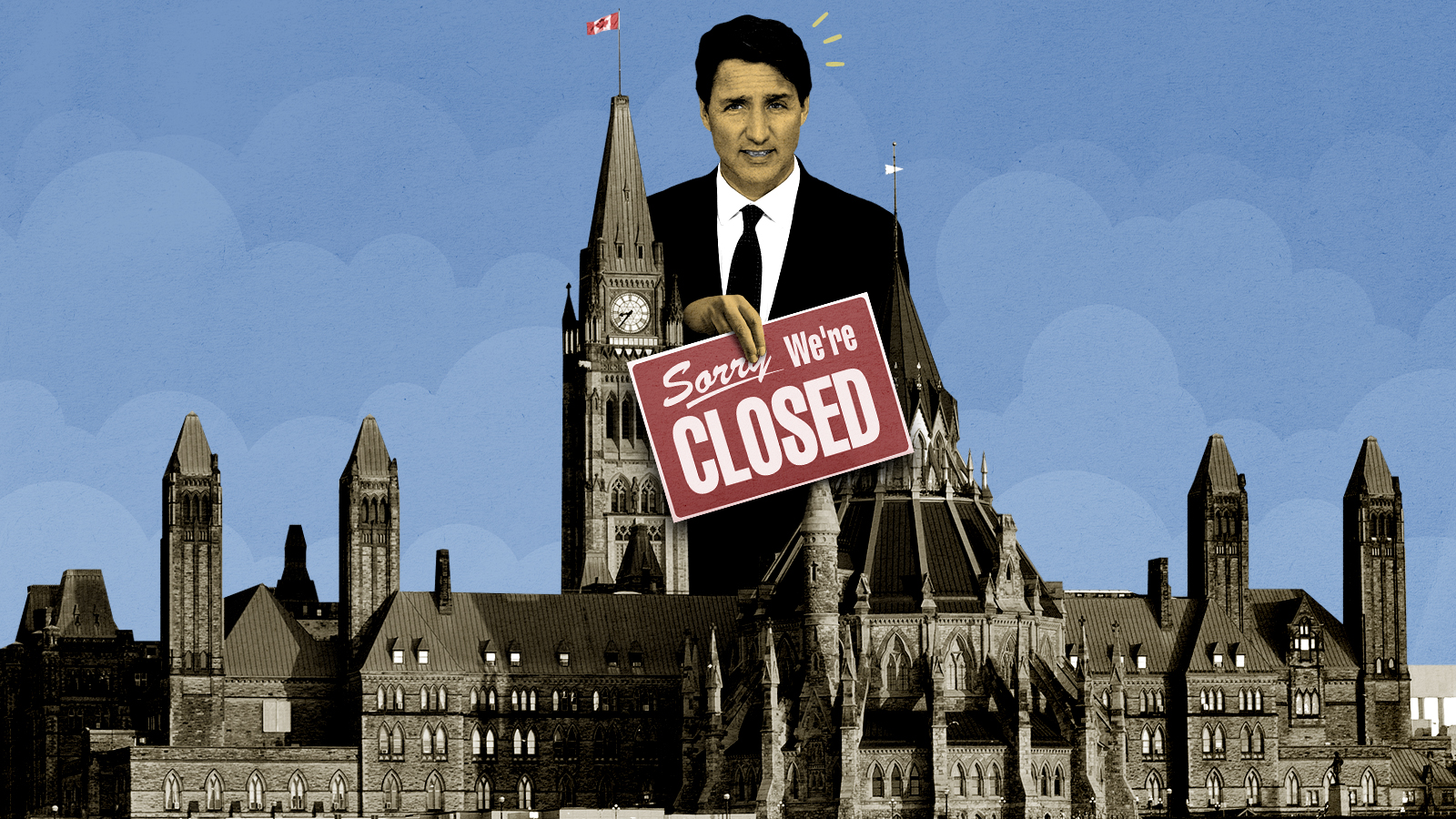Canada is playing fast and loose with the rule of law to suppress the Freedom Convoy. Where's the outrage?


A free daily email with the biggest news stories of the day – and the best features from TheWeek.com
You are now subscribed
Your newsletter sign-up was successful
Canada's legislature has been canceled, at least for the day. In a statement Friday morning, the speaker of the House of Commons announced the body would not sit due to operations to clear now-famous "Freedom Convoy" trucker protests in downtown Ottawa.
The decision not to hold go into session during heavy police action is not so shocking. And prime ministers have been accused of delaying legislative activity for political reasons in the past. Still, today's announcement is part of an extraordinary sequence of events that began on Monday, when Prime Minister Justin Trudeau invoked the Emergencies Act for the first time in Canada's history. The law doesn't override the Charter of Rights and Freedoms — Canada's counterpart to the Bill of Rights — but it does give the prime minister expanded authority to restrict demonstrations, freeze funds, and reinforce local authorities with national agencies.
Because it's such a drastic revision of standard procedures, however, invoking the act also requires approval by both houses of Parliament within seven sitting days of the emergency declaration. With the House of Commons closed, the government is effectively extending the clock on its use of special powers without democratic authorization.
The Week
Escape your echo chamber. Get the facts behind the news, plus analysis from multiple perspectives.

Sign up for The Week's Free Newsletters
From our morning news briefing to a weekly Good News Newsletter, get the best of The Week delivered directly to your inbox.
From our morning news briefing to a weekly Good News Newsletter, get the best of The Week delivered directly to your inbox.
An extra day may not seem like a big deal. But imagine if right-wing Hungarian Prime Minister Viktor Orbán or another professedly illiberal leader took similar steps. The measures would almost certainly be treated as a prelude to fascism. In fact, we don't have to imagine a comparison. When Orbán asserted emergency powers to combat the pandemic, he was denounced by European Union officials and a gamut of human rights experts.
Like any analogy, this one has limitations. Orbán's expanded powers were more sweeping than Trudeau's, and there are other reasons to be concerned about the state of affairs in Hungary. Still, it's striking how different the political and media response to a domestically popular government cracking down on dissent can be. In June of 2020, Hungary's Parliament voted to end the state of emergency three months after it was declared. How long before Canada's legislature gets its chance to vote? The clock is ticking.
A free daily email with the biggest news stories of the day – and the best features from TheWeek.com
Samuel Goldman is a national correspondent at TheWeek.com. He is also an associate professor of political science at George Washington University, where he is executive director of the John L. Loeb, Jr. Institute for Religious Freedom and director of the Politics & Values Program. He received his Ph.D. from Harvard and was a postdoctoral fellow in Religion, Ethics, & Politics at Princeton University. His books include God's Country: Christian Zionism in America (University of Pennsylvania Press, 2018) and After Nationalism (University of Pennsylvania Press, 2021). In addition to academic research, Goldman's writing has appeared in The New York Times, The Wall Street Journal, and many other publications.
-
 The ‘ravenous’ demand for Cornish minerals
The ‘ravenous’ demand for Cornish mineralsUnder the Radar Growing need for critical minerals to power tech has intensified ‘appetite’ for lithium, which could be a ‘huge boon’ for local economy
-
 Why are election experts taking Trump’s midterm threats seriously?
Why are election experts taking Trump’s midterm threats seriously?IN THE SPOTLIGHT As the president muses about polling place deployments and a centralized electoral system aimed at one-party control, lawmakers are taking this administration at its word
-
 ‘Restaurateurs have become millionaires’
‘Restaurateurs have become millionaires’Instant Opinion Opinion, comment and editorials of the day
-
 Big-time money squabbles: the conflict over California’s proposed billionaire tax
Big-time money squabbles: the conflict over California’s proposed billionaire taxTalking Points Californians worth more than $1.1 billion would pay a one-time 5% tax
-
 Did Alex Pretti’s killing open a GOP rift on guns?
Did Alex Pretti’s killing open a GOP rift on guns?Talking Points Second Amendment groups push back on the White House narrative
-
 Washington grapples with ICE’s growing footprint — and future
Washington grapples with ICE’s growing footprint — and futureTALKING POINTS The deadly provocations of federal officers in Minnesota have put ICE back in the national spotlight
-
 Trump’s Greenland ambitions push NATO to the edge
Trump’s Greenland ambitions push NATO to the edgeTalking Points The military alliance is facing its worst-ever crisis
-
 Why is Trump threatening defense firms?
Why is Trump threatening defense firms?Talking Points CEO pay and stock buybacks will be restricted
-
 The billionaires’ wealth tax: a catastrophe for California?
The billionaires’ wealth tax: a catastrophe for California?Talking Point Peter Thiel and Larry Page preparing to change state residency
-
 Trump considers giving Ukraine a security guarantee
Trump considers giving Ukraine a security guaranteeTalking Points Zelenskyy says it is a requirement for peace. Will Putin go along?
-
 Bari Weiss’ ‘60 Minutes’ scandal is about more than one report
Bari Weiss’ ‘60 Minutes’ scandal is about more than one reportIN THE SPOTLIGHT By blocking an approved segment on a controversial prison holding US deportees in El Salvador, the editor-in-chief of CBS News has become the main story
